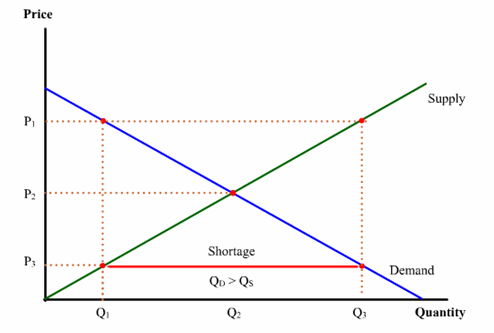Yellow Cabs, Red Tape
Transferable fixed-supply permanent taxi licenses result in high taxi fare and poor service with only normal return to current license owners.
In New York City where entry into the Yellow Cabs business is tightly licensed and taxi fares are high, the price of a taxi license is worth a whopping $400,000 (BW). There is a thriving business buying and selling taxi licenses. In fact, the value of a taxi license has been going up over 13% annually for the past 70 years (Markowitz).
The high price for taxi licenses is a natural result of a stagnant number of licenses amidst growing demand for taxi service. In fact, the number of taxi licenses has stayed around 12,000 since 1937 until quite recently. In other words, the high price of licenses is an economic rent1 resulting from growing demand for a fixed-supply resource. Yet, the current license holders may not be earning much more than the market return of their investment since they did not get their license for the original price of $10 in 1937. Every time the licenses change hands, the previous owners have cashed in most of the capital appreciation since they bought them from yet another set of previous owners. Although the property right to taxi licenses was created by the city, the city could not simply confiscate the licenses from the current owners. Quite the contrary, the current owners must be appeased if the city wants to increase the number of licenses. Specifically, any issue of additional licenses must be accompanied by fare increase to at least preserve the current value of existing licenses.
In other words, in order to have more taxis, riders must pay higher fares. In the normal world, more taxis should lead to lower prices due to price competition. Nor would the higher fares benefit the mostly immigrant taxi drivers who lease their cabs from the license holders. Most drivers lease their cabs from license holders for $100 (excluding gas money) per 12-hour shift and make no more than $10 an hour. (Malanga, 2002). Since there is no shortage of immigrant workers willing to work for low pay, license holders can simply jack up the lease fees to cream off any business uptake from the drivers.
Since no party seems to be unduly benefiting from the economic rent of permanent taxi licensing, the economic rent is needlessly dissipated. Such rent dissipation could be reduced via license auctioning. If non-transferable licenses are instead annually auctioned off to only owner-drivers, the economic rent from restricted licensing could be used to benefit multiple parties. Specifically, the proceeds from auctioning off new or expired licenses could be used to maintain the quality of taxi service, and to lower the annual renewal fee of existing licenses when additional licenses needed to be issued to meet growing demand for taxi service. More significantly, the annual renewable fees could be used to retire the permanent taxi licenses.
Notes:
- Economic rent is a payment made to a resource in excess of what is required to elicit its supply. The payment arises from current supply scarcity or legacy benefits that are difficult to do away with. It is needed to determine the employment but not the availability of that resource.
- Update: The emergence of Uber (See <a href="article.asp?docID=463">Uber as a Two-sided Market</a>) and other ride-sharing startups in major US cities has led to a near collapse of the taxi medallion market. Many medallion loans have been foreclosed as their deflated market values fell below their loan values. The fall in taxi revenues has greatly eroded the ability to service the remaining loans ("<a href="http://www.usatoday.com/story/news/2015/05/17/taxi-medallion-values-decline-uber-rideshare/27314735/">Once a sure bet, taxi medallions becoming unsellable. </a>" USA Today 5/18/2015).
References:
- Business Week. 2/20/2006. "Medallion Financial is cruising right along."
- Carroll and others. "The Market as a Commons: An Unconventional View of Property Rights," Journal of Economic Issues 13(2), June 1979: 605-627.
- Malanga, S. "How to fix Gotham's Taxi mess." City Journal. Spring 2002.
- Markowitz, M. "Taxis." Gotham Gazette. 01/12/2004.
- Passel, P. "Higher New York fares won’t help cabbies or improve service." New York Times. 10/5/1995.
- Randolph, A. "New York taxi policy is a lemon." WSJ 3/17/1992.
Glossary:
- economic rentEconomic rent is a payment made to a resource in excess of what is required to elicit its supply. The payment arises from current supply scarcity or legacy benefits that are difficult to do away with. It is needed to determine the employment but not the availability of that resource.
- price competitionCompeting for business on the basis of lower prices.
- property rightThe control over the use or transfer of a resource. Property right is conducive to efficient use of scarce resources as owners have an incentive to maximize their long-term returns.
- rent dissipationEconomic rent is dissipated when it is neither available to rent seekers nor those who create the rent by restricting economic activities desired by rent seekers.
- shortageThe excess of quantity demanded over quantity supplied at a given price. Also known as excess demand.

Topics:
Keywords
capitalization, dissipation, economic rent, medallion, transferable taxi licenses
